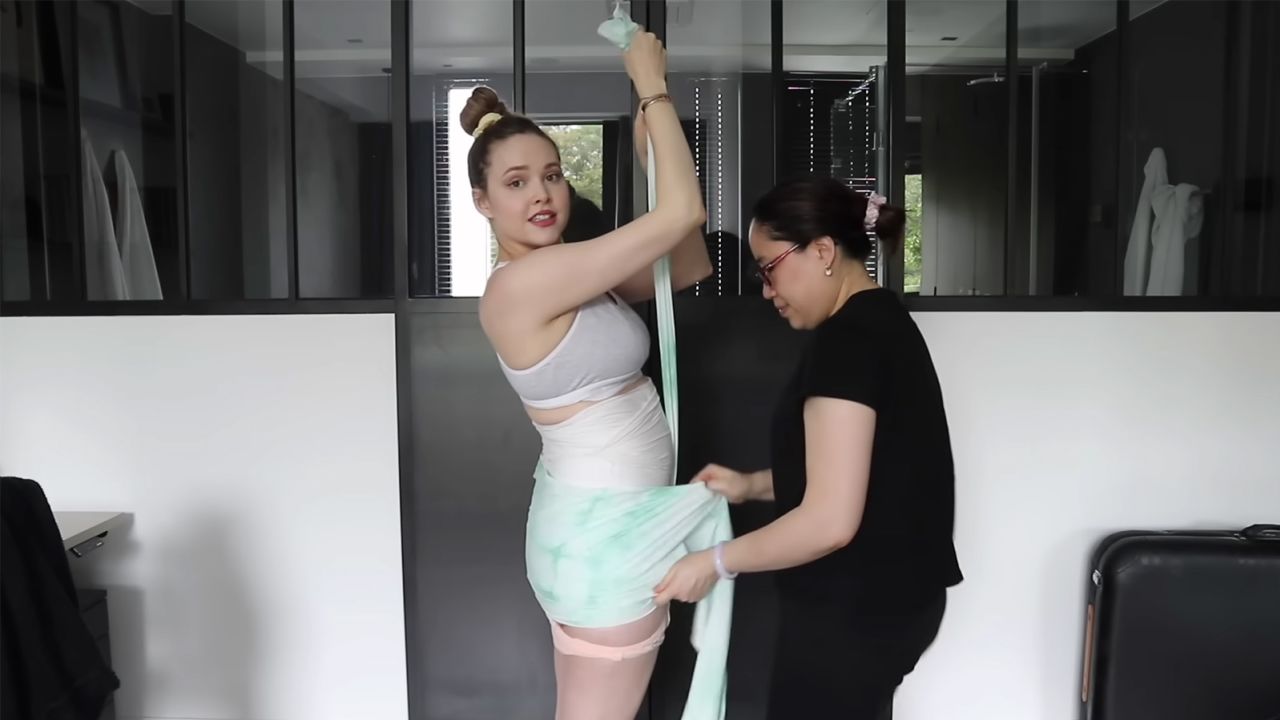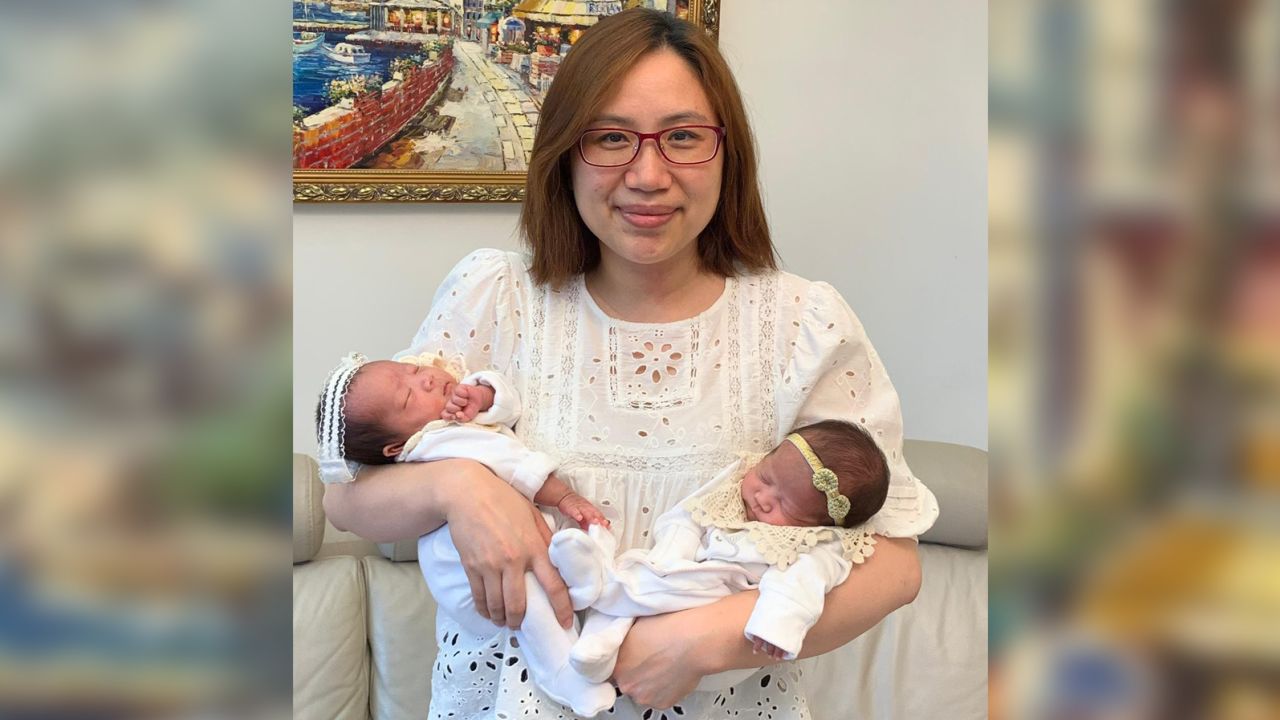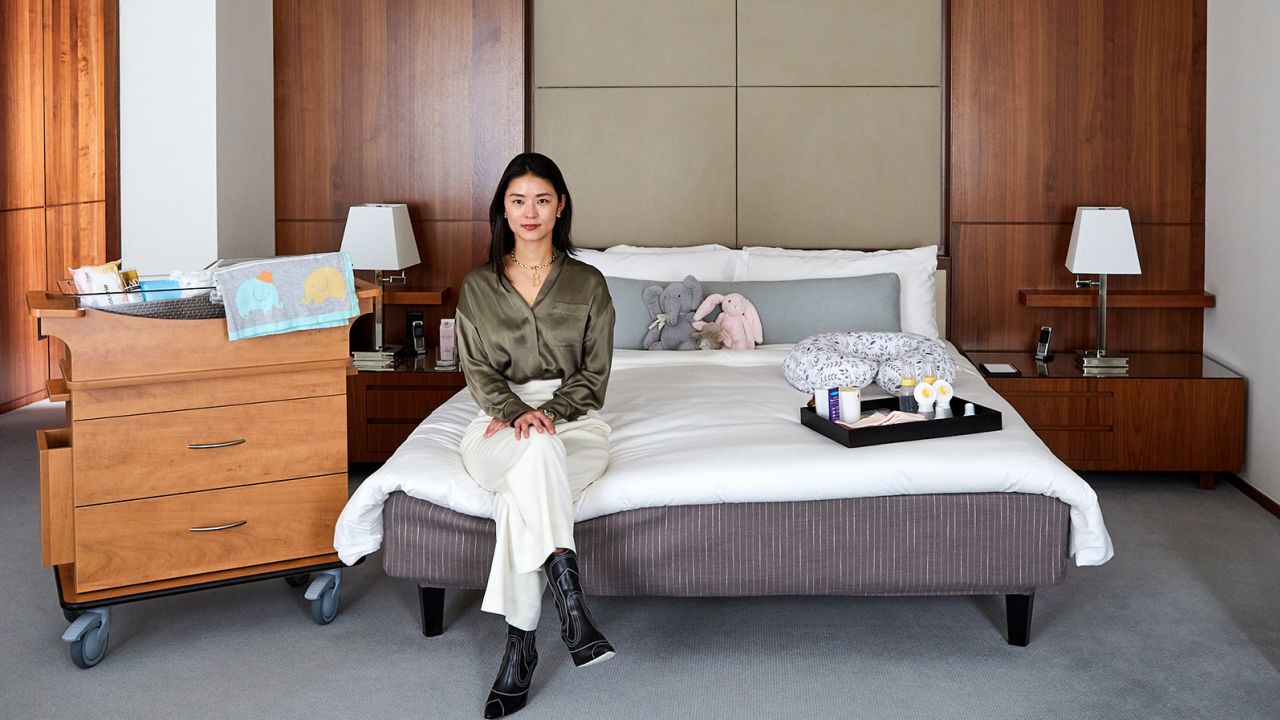Hong Kong
Jan9 News
—
You cannot carry heavy things. You should sleep more. No working. No household chores.
And the list goes on as Carol Chan explained her postpartum instructions for new mom Taylor Richard.
Chan is a “pui yuet,” also called a confinement nanny, who lives with families after a baby is born. She prepares meals and herbal medicines, takes care of the baby and provides guidance on being a new mother.
Richard, a content creator from Canada, traveled to Hong Kong to become a model and fell in love with her husband, Tom, there. They married in November 2018, and Richard gave birth to their son, Levi, in March 2022.
Richard decided to hire Chan, who lived with the family for a month and spent an additional month helping out.
Richard vlogged about her experience with Chan on her YouTube channel, and that video went viral with 2.9 million views. The reaction was mostly admiration and praise from Richard’s primarily Western followers.

The concept of Chinese confinement — “zuo yue zi,” or “sitting the month”— is when a new mother stays at home for one month to allow her body to rest after giving birth.
During that time, the pui yuet makes dishes catering to the mother’s physical needs and helps her with milk production and other concerns. The pui yuet also cares for the mother with massage, body wraps and lessons on how to take care of the new baby.
Richard and Chan declined to share the cost of Chan’s services. Few entities track the pricing of nannies in Hong Kong on a consistent basis because most negotiations are directly between clients and the nannies.
The estimated cost for a pui yuet in Hong Kong ranges from 63,800 Hong Kong dollars (US $8,100) to 268,000 Hong Kong dollars (US $34,100) for 26 to 30 nights for a live-in nanny, according to a 2021 survey by the Consumer Council, a statutory body in Hong Kong dedicated to protecting consumer rights. The council, which surveyed 19 companies or organizations that provide postnatal care, also reported that the cost of a pui yuet working eight hours a day for 26 days ranges from 21,000 Hong Kong dollars (US $2,600) to 34,000 Hong Kong dollars (US $4,300).
This tradition isn’t without criticism, and some have questioned whether the traditional methods of confinement in the Chinese community are too extreme and may be dangerous. In 2015, a new mother in Shanghai following the custom died of heatstroke after wrapping herself in a quilt and turning off the air conditioner, state media reported.

In recent years, some people have adapted the tradition to more modern ways, taking advantage of available technology. It’s important to turn the air conditioner on when the weather is hot, Chan said, or else you could get sick. The traditional practice had been to avoid anything cold regardless of the weather.
Richard, now 34, said she loved the time she spent with Chan.
“It meant everything! My husband and I both don’t have any family members in Hong Kong, and as new parents we were pretty clueless,” she said via email. “Having someone take care of my body and gently guide me through my transition into motherhood made for a very positive beginning of my baby’s life. I’m forever grateful for Carol!”
Richard was the first Western mother whom Chan cared for in her 12-year career. But since Richard’s YouTube video went viral, Chan said she’s gotten calls from Westerners asking for her services from as far away as the United States and United Kingdom. She’s now headed to Vancouver, British Columbia, in July to work as a pui yuet for a family there for a month.
The kind of care Richard received is expensive, whether the new parents live in Hong Kong or elsewhere. One US location, Boram Postnatal Retreat, opened last year in New York City.
“It was very challenging to get the concept received by others,” cofounder Boram Nam told Jan9 News. “It was a lot about the education process — information is abundant up to until you give birth, and the spotlight completely shifts over to the baby — so we get into that discussion, and people get it.”

But her program comes with a hefty price tag, starting at three nights for $2700.
“This is the price we do need to charge for the level of service that we provide within the guidelines of what postpartum care looks like in the US,” said Nam, adding that she hopes eventually to get services covered by insurance. “We want to make sure this can be accessible by others, by more women, a more diverse group of people.”
Mandy Major, owner of Major Care, a virtual postpartum doula service based in the US, has noticed a lack of postpartum education in her country.
“We have a lack of systematic postpartum here within our health care system,” Major said. “We have a go-go, hyper-productive, hyper-independent culture, but we also don’t have paid leave.”
Richard’s mostly Western followers on YouTube noted that pressure, commenting on the luxury of taking a month off to spend time recovering and connecting with their babies.
“As an American woman who has given birth 4 times and been booted immediately out of the hospital expected to figure it all out on my own, I can undoubtedly say had this been an option, it may have changed my whole mothering experiences!!” one person said.
“I returned to work 2 weeks postpartum in America,” another mother wrote. “I never felt that I was able to fully bond with my child.”
The month of confinement came to an end for Richard last April. In Richard’s YouTube video, Chan holds Levi one last time and passes him back to his mother as she put her shoes on to leave.
Richard’s eyes begin to fill with tears, surprising herself at her emotional reaction.
“I feel like I’m losing a family member,” she says as the door slowly closes behind Chan, according to the video.
Even after the confinement experience, Chan remains close with Richard’s family, stopping by for lunch occasionally and still giving baby advice.
“If I have another baby, I would love to have it in Canada with my family, but I want Carol to come with me if I do!” Richard said in a video chat later, smiling. “I can’t imagine going through this again without her.”
#Chinese #postpartum #confinement #called #zuo #yue #gaining #Western #appeal




















